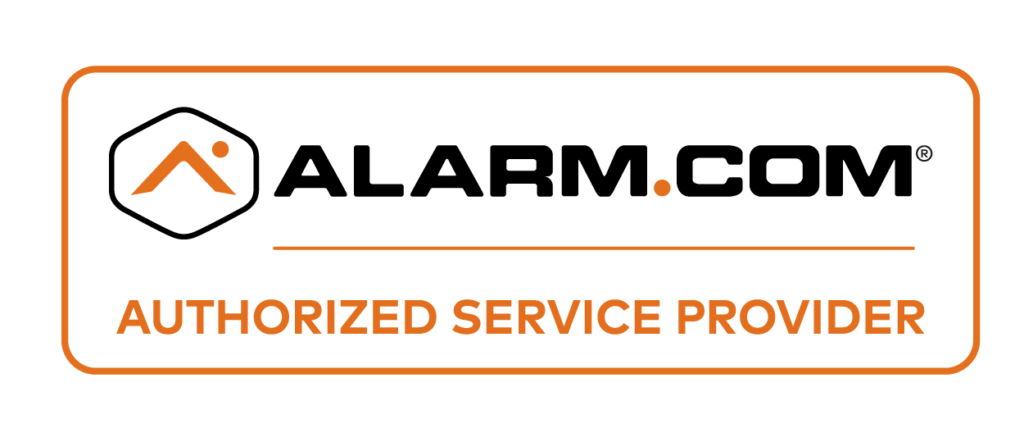Commercial security solutions refer to the measures and strategies implemented by businesses to protect their assets, employees, and customers from potential threats. These solutions encompass a wide range of tools and techniques, including physical security measures such as surveillance cameras and access control systems, as well as cybersecurity measures like firewalls and encryption protocols.
In today’s increasingly digital and interconnected world, the importance of commercial security solutions cannot be overstated. Businesses face a myriad of security risks, ranging from theft and vandalism to data breaches and cyberattacks. Without adequate security measures in place, businesses are vulnerable to financial losses, reputational damage, and legal liabilities.
Key Takeaways
- Commercial security solutions are essential for protecting businesses from various security risks.
- Customized approaches are crucial for addressing the unique security needs of different businesses.
- Different types of businesses face different security risks, and security solutions should be tailored accordingly.
- Understanding the specific needs of each business is necessary for developing effective security solutions.
- Customized security solutions offer numerous benefits, including improved security, cost-effectiveness, and peace of mind.
The Importance of Customized Approaches for Different Businesses
While there are certain universal principles and best practices that apply to commercial security, it is crucial to recognize that each business is unique and faces its own set of security challenges. A one-size-fits-all approach to security simply does not work. Instead, businesses need customized security solutions that are tailored to their specific needs and circumstances.
One of the main benefits of customized security solutions is that they take into account the unique vulnerabilities and risks faced by each business. By conducting a thorough assessment of a business’s operations, assets, and potential threats, security experts can develop a comprehensive security plan that addresses the specific needs of the business. This customized approach ensures that resources are allocated efficiently and effectively, maximizing the overall security posture of the business.
Security Risks Faced by Different Types of Businesses
Different industries face different types of security risks. For example, retail businesses are particularly vulnerable to theft and shoplifting, while healthcare facilities must contend with the risk of unauthorized access to patient records. Financial institutions face the constant threat of fraud and cyberattacks, while manufacturing plants must protect their valuable equipment and intellectual property.
Examples of security breaches in different industries abound. In 2013, retail giant Target suffered a massive data breach that compromised the personal and financial information of over 40 million customers. In the healthcare industry, the ransomware attack on the UK’s National Health Service in 2017 disrupted patient care and highlighted the vulnerability of critical infrastructure to cyber threats. These incidents serve as stark reminders of the importance of customized security solutions that address the unique risks faced by each industry.
Understanding the Unique Needs of Each Business
To develop effective security solutions, it is crucial to understand the unique needs of each business. This requires a comprehensive assessment of the business’s operations, assets, and potential threats. By conducting a thorough analysis, security experts can identify vulnerabilities and develop strategies to mitigate risks.
Understanding a business’s unique needs involves considering factors such as its physical layout, employee access requirements, and industry-specific regulations. For example, a retail business may need to implement surveillance cameras and access control systems to prevent theft, while a healthcare facility may require strict access controls to protect patient privacy. By tailoring security solutions to meet these specific needs, businesses can ensure that their assets and operations are adequately protected.
Tailoring Security Solutions to Meet Specific Business Needs
Once the unique needs of a business have been identified, security solutions can be tailored to address those needs. This may involve a combination of physical security measures, such as surveillance cameras, alarms, and access control systems, as well as cybersecurity measures like firewalls, encryption protocols, and employee training programs.
For example, a retail business may benefit from a comprehensive video surveillance system that covers all areas of the store, including point-of-sale terminals and stockrooms. This system can help deter theft and provide valuable evidence in the event of an incident. On the other hand, a financial institution may require advanced cybersecurity measures such as multi-factor authentication and intrusion detection systems to protect customer data and prevent unauthorized access.
Benefits of Customized Security Solutions
There are several benefits to implementing customized security solutions for businesses. Firstly, customized solutions provide increased security by addressing the specific vulnerabilities and risks faced by each business. By tailoring security measures to the unique needs of the business, potential weaknesses can be identified and mitigated, reducing the likelihood of security breaches.
Secondly, customized security solutions can be more cost-effective in the long run. While off-the-shelf security products may seem cheaper initially, they may not provide adequate protection for a business’s specific needs. This can result in higher costs in the long term, such as losses due to theft or data breaches. By investing in customized security solutions, businesses can ensure that their resources are allocated efficiently and effectively, minimizing potential losses.
Finally, customized security solutions can improve employee productivity. When employees feel safe and secure in their work environment, they are more likely to focus on their tasks and perform at their best. Additionally, security measures such as access control systems can streamline workflows and reduce the risk of unauthorized access or data breaches.
Examples of Customized Security Solutions for Different Businesses
Different types of businesses require different security solutions to address their unique needs. Here are some examples of customized security solutions for different industries:
1. Retail businesses: Retail businesses often face the risk of theft and shoplifting. To address this, they may implement a combination of physical security measures such as surveillance cameras, alarms, and access control systems. Additionally, inventory management systems can help track merchandise and identify discrepancies.
2. Healthcare facilities: Healthcare facilities must protect patient privacy and prevent unauthorized access to sensitive information. Access control systems that require authentication can help ensure that only authorized personnel have access to patient records. Additionally, video surveillance systems can help monitor high-risk areas such as medication storage rooms.
3. Financial institutions: Financial institutions face the constant threat of fraud and cyberattacks. To address these risks, they may implement advanced cybersecurity measures such as multi-factor authentication, encryption protocols, and intrusion detection systems. Additionally, physical security measures such as access control systems and surveillance cameras can help protect sensitive areas like vaults and ATMs.
4. Manufacturing plants: Manufacturing plants must protect their valuable equipment and intellectual property. Access control systems can help restrict access to sensitive areas and prevent unauthorized entry. Video surveillance systems can also help monitor production lines and identify potential security breaches.
How to Choose the Right Security Solutions Provider
Choosing the right security solutions provider is crucial to the success of any security program. Here are some factors to consider when selecting a provider:
1. Expertise and experience: Look for a provider with a proven track record in the industry. They should have experience working with businesses similar to yours and be familiar with the unique security challenges faced by your industry.
2. Comprehensive services: Ensure that the provider offers a wide range of security solutions, both physical and cybersecurity. This will allow you to address all aspects of your business’s security needs in one place.
3. Customization capabilities: The provider should have the ability to tailor security solutions to meet your specific needs. They should be willing to conduct a thorough assessment of your business’s operations, assets, and potential threats before developing a customized security plan.
4. Ongoing support: Security needs evolve over time, so it is important to choose a provider that offers ongoing support and maintenance services. This will ensure that your security solutions remain effective and up-to-date.
When evaluating potential providers, be sure to ask them the following questions:
– Can you provide references from other businesses in my industry?
– How do you stay up-to-date with the latest security trends and technologies?
– Do you offer 24/7 support in case of emergencies?
– What metrics do you use to measure the effectiveness of your security solutions?
Evaluating the Effectiveness of Customized Security Solutions
Once customized security solutions have been implemented, it is important to evaluate their effectiveness on an ongoing basis. This involves measuring key metrics and conducting regular assessments to identify any weaknesses or areas for improvement.
Some metrics that can be used to measure the effectiveness of security solutions include:
– Incident response time: How quickly security incidents are detected and responded to.
– Incident resolution time: How long it takes to resolve security incidents and restore normal operations.
– Employee compliance: The level of adherence to security policies and procedures by employees.
– Number of security incidents: The frequency and severity of security incidents over a given period.
Ongoing evaluation is crucial because security threats are constantly evolving. By regularly assessing the effectiveness of security solutions, businesses can identify any gaps or weaknesses and make necessary adjustments to ensure continued protection.
Future Trends in Commercial Security Solutions for Different Businesses
The field of commercial security solutions is constantly evolving as new technologies and threats emerge. Here are some future trends to watch out for:
1. Artificial intelligence (AI) and machine learning: AI and machine learning technologies have the potential to revolutionize commercial security. These technologies can analyze vast amounts of data in real-time, enabling businesses to detect and respond to security threats more effectively.
2. Internet of Things (IoT) security: As more devices become connected to the internet, the need for robust IoT security solutions will increase. Businesses will need to implement measures to protect their IoT devices from cyberattacks and ensure the integrity of their data.
3. Biometric authentication: Biometric authentication methods such as fingerprint scanning and facial recognition are becoming increasingly popular for access control systems. These methods provide a higher level of security compared to traditional passwords or access cards.
4. Cloud-based security solutions: Cloud-based security solutions offer scalability, flexibility, and cost-effectiveness. As businesses increasingly move their operations to the cloud, they will need security solutions that can protect their data and applications in this environment.
In conclusion, commercial security solutions are essential for businesses of all sizes and industries. Customized approaches that address the unique needs of each business are crucial for maximizing security and minimizing risks. By understanding the specific vulnerabilities and risks faced by a business, security experts can develop tailored solutions that provide increased security, cost-effectiveness, and improved employee productivity. As technology continues to advance, businesses must stay vigilant and adapt their security solutions to keep pace with emerging threats.
FAQs
What are commercial security solutions?
Commercial security solutions refer to the various measures and technologies put in place to protect businesses from security threats such as theft, vandalism, cyber attacks, and other forms of criminal activities.
Why do businesses need customized security solutions?
Different businesses have different security needs depending on their size, location, industry, and other factors. Customized security solutions ensure that businesses get the right level of protection that meets their specific needs.
What are some common commercial security solutions?
Common commercial security solutions include access control systems, surveillance cameras, alarm systems, fire detection systems, biometric systems, and cybersecurity measures.
How do businesses choose the right security solutions?
Businesses should conduct a security assessment to identify their security risks and needs. They should then work with a reputable security provider to develop a customized security plan that addresses their specific needs.
What are the benefits of commercial security solutions?
Commercial security solutions help businesses protect their assets, employees, and customers from security threats. They also help businesses comply with regulatory requirements, reduce insurance costs, and improve overall business operations.
How much do commercial security solutions cost?
The cost of commercial security solutions varies depending on the type and level of security needed. Businesses should work with a security provider to develop a customized security plan that fits their budget.










